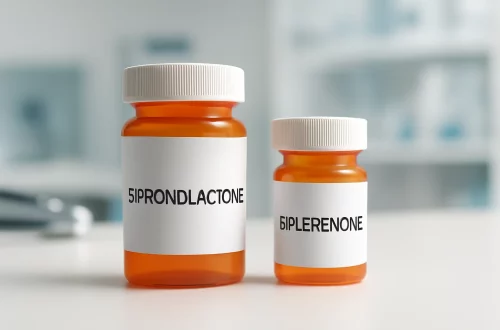
Pepto Bismol Tablet Dosage for Dogs Based on Weight Guide
Pepto Bismol is a well-known medication, frequently used by humans to alleviate gastrointestinal issues such as nausea, heartburn, and diarrhea. However, many pet owners may wonder if this medication is safe and effective for their canine companions. Dogs can experience similar digestive problems, and understanding how to manage their symptoms is crucial for their well-being. While Pepto Bismol is not specifically formulated for dogs, some veterinarians may recommend it under certain circumstances. It is essential for pet owners to be aware of the appropriate dosages and the potential risks involved when administering any medication to their pets.
In this context, weight plays a significant role in determining the correct dosage of Pepto Bismol for dogs. Each dog’s size and weight can influence how they metabolize medications, making it vital to follow proper guidelines to ensure safety. Additionally, certain factors, such as the dog’s age, overall health, and any underlying conditions, may affect their reaction to the medication. As a responsible pet owner, it’s essential to approach this subject with caution and seek professional guidance when needed.
By equipping yourself with knowledge about Pepto Bismol dosage for dogs based on weight, you can better navigate the complexities of your pet’s health needs. This article will provide insights into the proper dosages, potential side effects, and considerations to keep in mind when contemplating the use of Pepto Bismol for your dog.
Understanding Pepto Bismol and Its Uses in Dogs
Pepto Bismol, or bismuth subsalicylate, is an over-the-counter medication that is widely used to treat various gastrointestinal discomforts in humans. Its primary function is to provide relief from diarrhea, indigestion, and upset stomach. When it comes to dogs, the use of Pepto Bismol is sometimes recommended by veterinarians for similar issues. However, it’s crucial to recognize that this medication is not officially approved for canine use, and its administration should always be approached cautiously.
The mechanism of action for Pepto Bismol involves coating the stomach lining and neutralizing stomach acid, which can help reduce irritation and inflammation in the gastrointestinal tract. Additionally, it has mild antibacterial properties that can assist in combating certain types of bacteria that may cause digestive disturbances. While these effects can be beneficial for dogs in some cases, they are not universally applicable, and the potential for adverse reactions exists.
Before considering Pepto Bismol for your dog, it is essential to understand the specific conditions it may help alleviate. Dogs can suffer from various gastrointestinal issues, including dietary indiscretion, stress-induced upset stomach, and infections. In some cases, Pepto Bismol may provide temporary relief from symptoms such as diarrhea or vomiting. However, it’s crucial to identify the underlying cause of these symptoms, as treating the symptom alone may not address the root issue.
Veterinarians may recommend Pepto Bismol for dogs weighing over a certain amount, typically when the benefits outweigh the risks. It’s important to highlight that certain breeds and individual dogs may react differently to medications, making it vital to consult with a veterinarian before administering any treatment. This ensures that your dog’s unique health profile is taken into consideration, and appropriate dosages can be determined.
Determining the Right Dosage Based on Your Dog’s Weight
When it comes to administering Pepto Bismol to dogs, dosage is a critical factor that can significantly influence the effectiveness and safety of the medication. The appropriate dosage of Pepto Bismol for dogs is generally calculated based on their weight. The standard recommendation is usually around 0.5 to 1 milligram of bismuth subsalicylate per pound of body weight, administered every 6 to 8 hours.
For example, a 10-pound dog may receive 5 to 10 milliliters of Pepto Bismol, while a larger dog weighing 50 pounds might require a dosage of 25 to 50 milliliters. However, it is crucial to measure the dosage accurately using a syringe or a measuring spoon to ensure precision. Overdosing can lead to severe side effects, while underdosing may not provide the desired relief.
In addition to weight, other factors can influence the dosage. Dogs with pre-existing health conditions, such as kidney or liver problems, may require adjusted dosages. Furthermore, puppies and senior dogs may have different metabolic rates, making it essential to consult with a veterinarian for personalized advice.
When administering Pepto Bismol, it is advisable to start with the lower end of the dosage range and monitor your dog for any adverse reactions. Common side effects include a change in stool color, which may turn black due to the bismuth content, as well as potential constipation. If any concerning symptoms arise, such as persistent vomiting or lethargy, it is crucial to seek veterinary attention immediately.
Moreover, it is essential to note that Pepto Bismol should not be given to dogs that are pregnant, nursing, or have certain medical conditions, such as bleeding disorders or allergies to salicylates. Always prioritize your dog’s health and safety by consulting a veterinarian before introducing any new medication into their routine.
Potential Risks and Side Effects of Pepto Bismol in Dogs
While Pepto Bismol can provide relief for certain gastrointestinal issues in dogs, it is not without its risks and potential side effects. As with any medication, understanding these risks is vital for making informed decisions about your pet’s health.
One of the primary concerns with administering Pepto Bismol is the possibility of salicylate toxicity. Since bismuth subsalicylate contains salicylate, which is related to aspirin, it can pose risks for dogs, especially those with pre-existing conditions. Symptoms of salicylate toxicity may include vomiting, diarrhea, lethargy, or even more severe complications such as gastrointestinal bleeding. Therefore, it is crucial to adhere strictly to the recommended dosages and avoid giving Pepto Bismol to dogs who may be sensitive to salicylates.
Another potential side effect is the alteration of stool color. As mentioned earlier, the bismuth in Pepto Bismol can cause stools to appear black. While this change is not harmful, it can be misleading for pet owners who may confuse it with signs of internal bleeding. Monitoring your dog’s stool and behavior after administration is essential to distinguish between normal side effects and potential health issues.
Additionally, some dogs may experience gastrointestinal upset, including constipation or worsening of diarrhea, after taking Pepto Bismol. If you notice that your dog’s condition does not improve within 24 hours or if it worsens, it is crucial to consult your veterinarian for further evaluation and possible alternative treatments.
In summary, while Pepto Bismol can be an option for managing certain digestive issues in dogs, it is essential to be aware of the potential risks and side effects. Always prioritize your dog’s health by consulting with a veterinarian before administering any medication, and closely monitor their reaction to ensure their safety and well-being.
Consulting Your Veterinarian: A Must for Pet Owners
When it comes to your dog’s health, consulting a veterinarian should always be the first step before administering any medication, including Pepto Bismol. Veterinarians are trained professionals who can provide personalized advice based on your dog’s unique health profile, ensuring that they receive the safest and most effective treatment.
There are several reasons why it is essential to consult your veterinarian before giving Pepto Bismol to your dog. First and foremost, a veterinarian can evaluate your dog’s symptoms and determine the underlying cause of their gastrointestinal issues. This is crucial because treating the symptom without addressing the root cause may lead to further complications.
Additionally, your veterinarian can offer guidance on the appropriate dosage based on your dog’s weight and health status. They can help you navigate the complexities of dosing, especially if your dog has pre-existing health conditions or is on other medications that may interact with Pepto Bismol. This ensures that your dog receives the right treatment without risking their safety.
Furthermore, veterinarians can recommend alternative treatments or therapies that may be more suitable for your dog’s condition. In some cases, dietary changes, probiotics, or prescription medications may be more effective in managing gastrointestinal issues than over-the-counter medications like Pepto Bismol.
Finally, by consulting a veterinarian, you can gain peace of mind knowing that you are making informed decisions about your dog’s health. They can provide valuable information about the potential risks and benefits of using Pepto Bismol, empowering you to make the best choices for your canine companion.
In conclusion, while Pepto Bismol may offer relief for certain digestive issues in dogs, it is crucial to consult with a veterinarian before administering this medication. Your dog’s health and well-being should always be the top priority, and professional guidance can help ensure their safety and comfort.
**Disclaimer:** This article is not intended as medical advice. Always consult your veterinarian for guidance on your pet’s health and treatment options.




